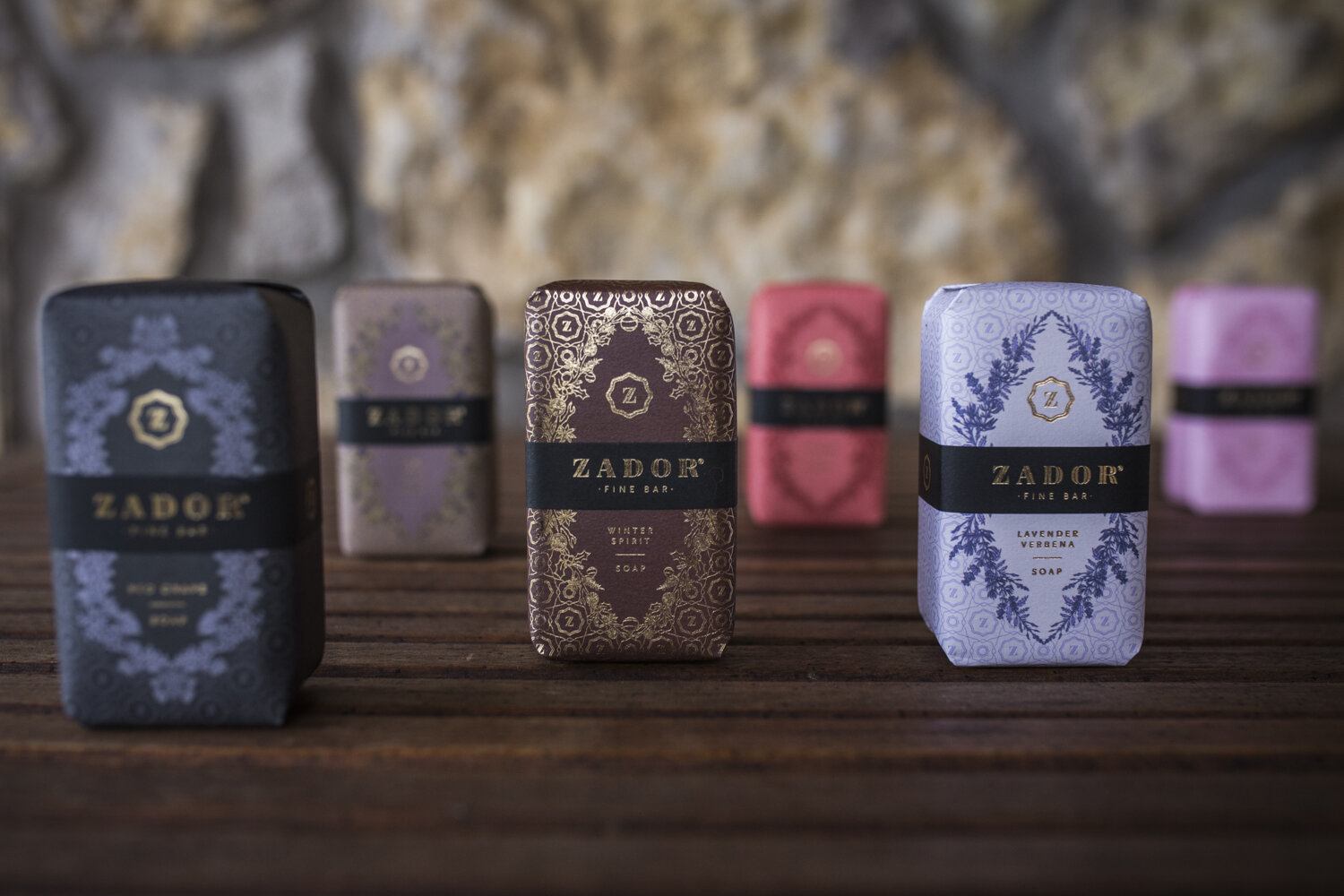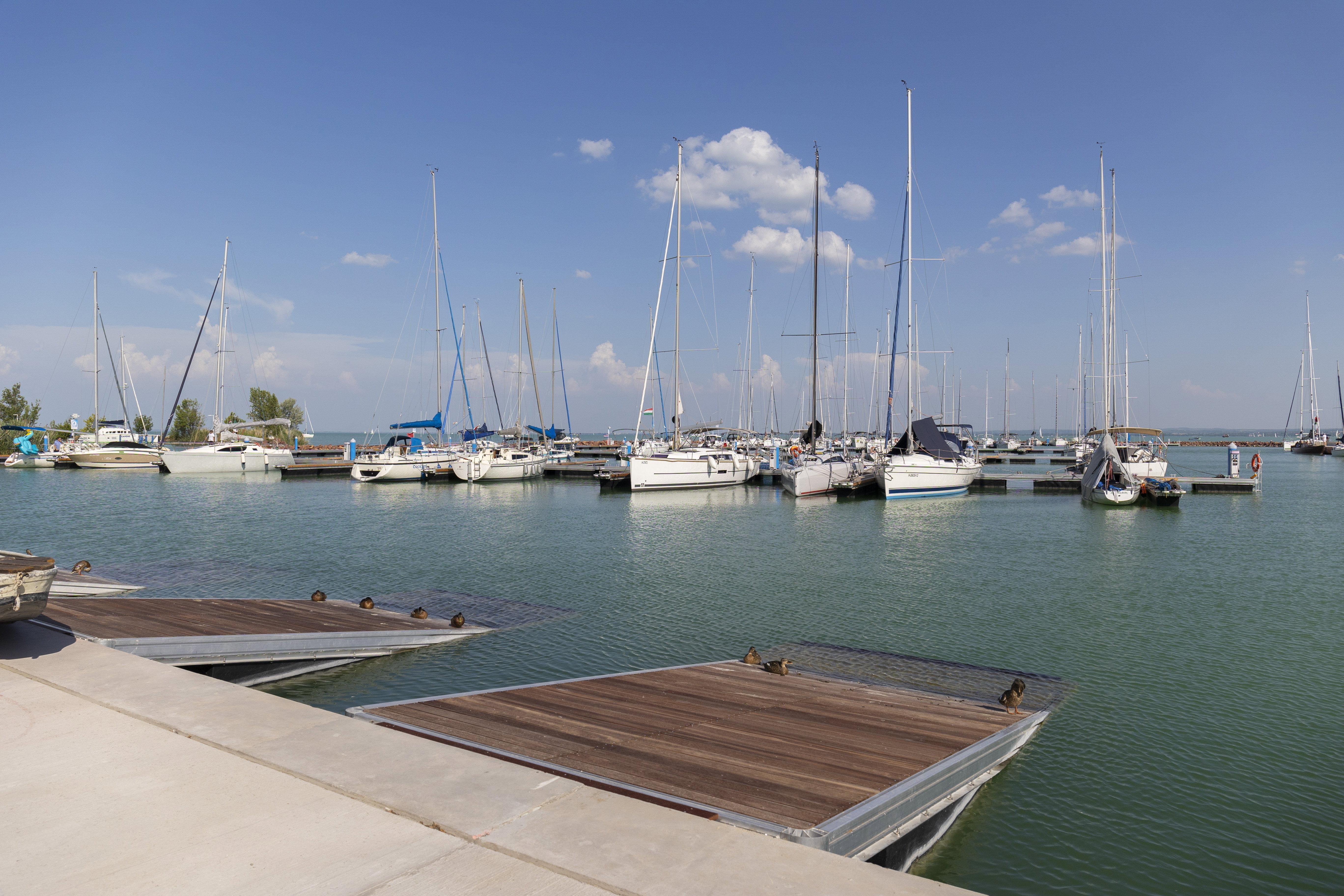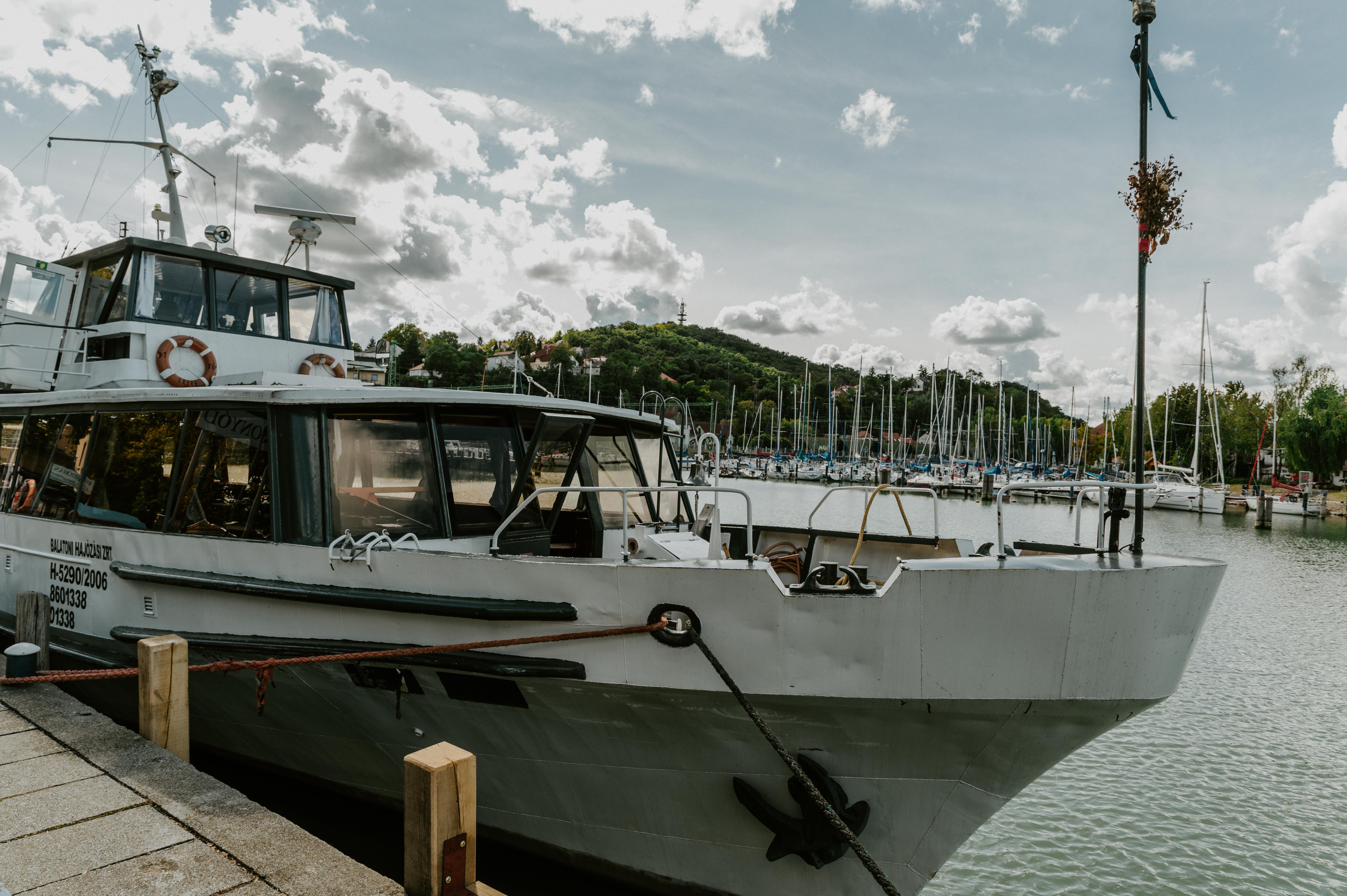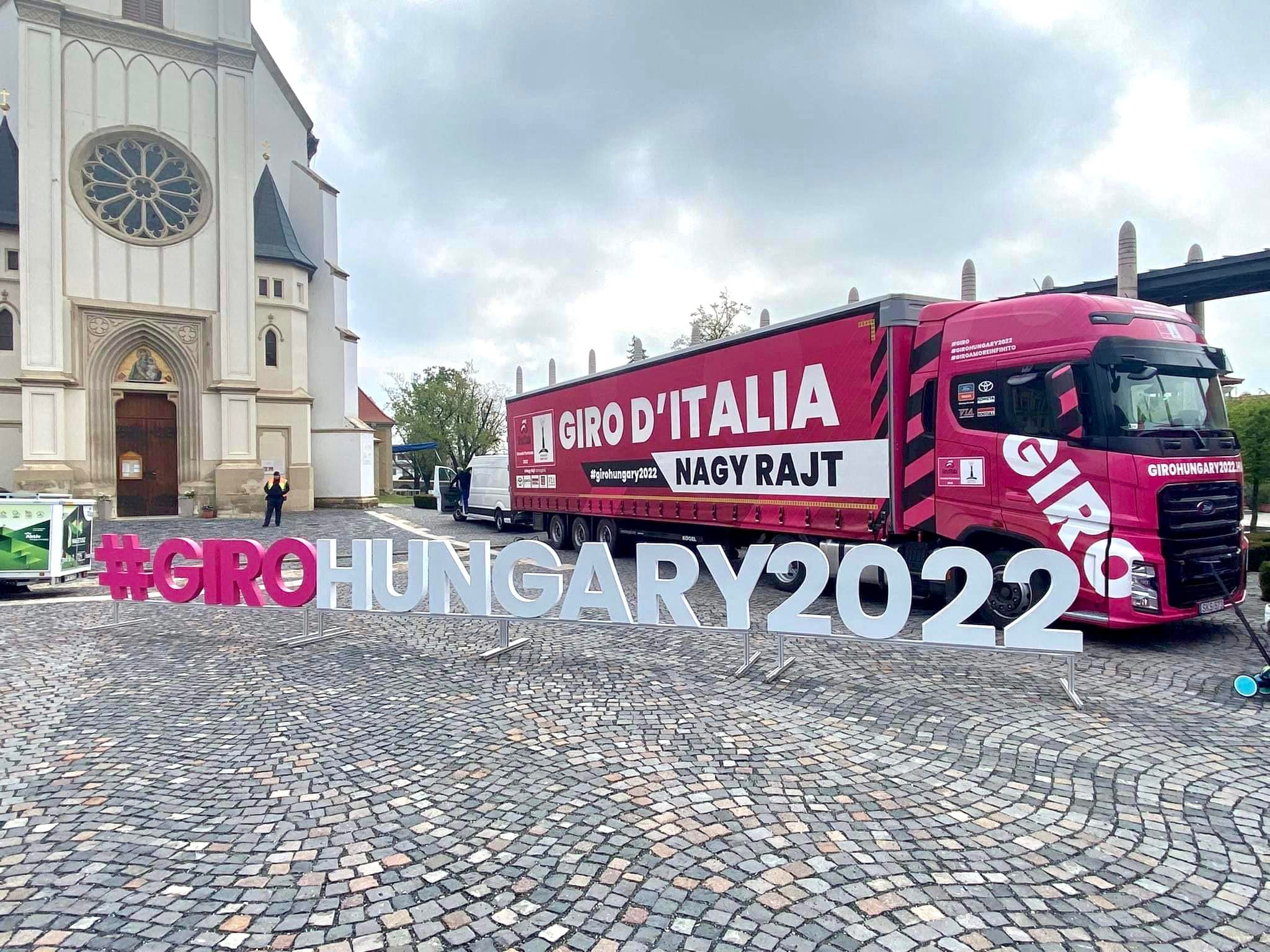There’s a small factory hidden among the slopes of the Balaton Uplands. They mix and refine the batter, they press the name into the soaps with gloved hands, then they wrap it in the carefully selected and designed paper in the shed of a fairytale-like thatched farmhouse. The crickets chirp outside while there’s an abundance of scents inside: cocoa, grapes, figs, roses, acacia, and more. Dóra Florian and her family started out knowing nothing about soap making, now they have two brands that they sell not only in Hungary, but around the world as well – and all of this happens in Pécsely.
Dóra Florián and her husband, István Eizenacker started thinking about starting a business after 2000. They had various ideas, but none of them stuck. That was when a family they knew, and who were making ceramics, came to them saying that they would like to make, or have someone to make soaps that go with their products. Dóra and her husband shortly decided to do it.
The chemists make soaps
Since Dóra’s parents are chemical engineers, their knowledge provided a base. István, with great determination and endurance, learned the tricks of soap making by himself: he read, questioned, experimented. In the beginning he and his father-in-law mixed and pressed the soaps with a manual machine in the shed of their holiday home in Pécsely. As time went by, they gained more experience, and the results got better and better – but there still was place for improvements. There were numerous times when they almost gave up, but one of them always encouraged the uncertain other. Then, finally, the machine-production started in 2010.

In the couple’s experience, the fashionable “homemade” soaps are loved by many yet they don’t really deliver the promised quality. To create real quality, you need exquisite ingredients, and that costs a lot of money. The merchant’s interest was to get the final product for as cheap as possible: that’s where the interests of the manufacturer and the merchant were separated.
Dóra and István didn’t want to disappoint their costumers when they open the soaps made in Pécsely. So the cooperation ended after a few years and their paths split. That certain costumer has been making their soaps outside the European Union now. Meanwhile – as the end of the fusion was anticipated – Dóra and István started to develop their own, premium product.

What makes a soap a soap?
Their plan worked out. Named after Zadorvár behind the holiday home, Zador was ready to born in 2013. The ingredients of the luxury soap include the thermal water of Hévíz, and the scents include fig and pear. “We have a new scent this year, the magnolia-lily one, and it’s a huge hit,” was the answer to our question that we asked when we stumbled upon one of their soaps in a store.
The Florians put the bar high, and their first shipment went abroad; then they slowly conquered the market in Hungary as well, with a focus on hotels and perfumeries. They also wanted to meet the needs of average costumers – with a similarly elegant, pretty packaging – so they created the Floran’s product line, which is feminine, delicate, lush, and soft in all aspects.

We were immediately hit by strong scents upon entering the factory; then we realized that, despite the huge machines, there wasn't much noise, and everything was squeaky clean. They use four different machines during the production: a large blender, a two-level double-screw refiner, a press, and an extrusion machine.
Only the perfume isn’t organic
The batter is a different story. “At first we made the soap-base ourselves, but that is a long process that requires a lot of energy, and it results in only a little amount a day. Today we buy the ready-made ingredients in bulk. We pour this into the blender, and then we add the precisely measured oils, fats, and fragrances. Once that’s done, it’s time for refinement,” said István as he pointed to the next machine.

They ordered the huge machine from the USA in 2013. There are two gigantic engines on top each other in the machine – these drive the double-screw refiner. The batter they pour in is pressed through a tiny, fine filter by the screws, which results in a completely homogeneous material. At first glance it looks like grated cheese coming out from a huge metal box.
Repeated twice, this process makes sure that the product will be hard, and lasting due to its homogeneity. It’s not grainy, its texture is unified, and its consistency and scent will remain the same as it was when the wrapping was removed. It lasts for two months if it’s used daily.

Multiple refining plays a key role in the quality of the final product. The traditional, big French, Italian, and Portuguese soap producers refine the soap shavings three, four, or even more times before the extrusion, which makes the soap’s texture better but also increases the cost of production.
Regarding the ingredients, almost everything is natural: the only reason it isn’t a 100% organic is the perfume in it. The shea butter, vegetable fat, and oils make the otherwise hard soap silky; these ingredients make sure that the soap isn’t drying, that it lasts, and has a good lather

“We order the perfumes from England and France. We don’t use bleach and we don’t use artificial coloring. The grape version has a slight maroon shade which is a result of the used fragrance and oxidation,” Dóri told us.
“We hand-pack to spot imperfections”
After the refinement comes the smaller-looking extruder. Its head is interchangeable, and this determines the shape of the soap: it’s cylindrical or rectangular. Then comes the cutting: a precision machine sharply divides the raw soaps to pieces with almost identical weight. The next step is to shape the soap: each piece is put into the mold by a human hand, and it obtains its final shape after the pressing. The machine was made according to a design by István.

A lady packs each soap, her hands move with experience: every fold is smooth, and one pink tissue paper covered soap leaves her hands after the other.
Before we leave the factory, István points out that all of this comes with a “bit” of administration. They keep precise records of when, what, and how much arrives from where, and of how much they used for production. Everything is marked with its expiration date.

They say that their daily life is about continuous development. "It was very important to us to have a quality product, with a quality appearance. The paper and design should also have a great quality. And that this should not only show in the packaging of the soap, but also on the website, the price list, gift vouchers, and every accessory,” said Dóri and she added that graphic artists Eszter Laki is the one who designs the packaging of the Zador and Floran's products.
They plan to expand, but they don’t want everything to be done by an automatic production line. They want to continue to only ship out soaps that were seen by someone. “This is sort of a quality control, but it originates from the production technology, as these soaps doesn’t come from mass production, instead we pack them individually, by hand. We also insist on this for the sake of quality, as this way we can spot aesthetic imperfections in the last minute,” says István about their thoroughness





